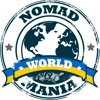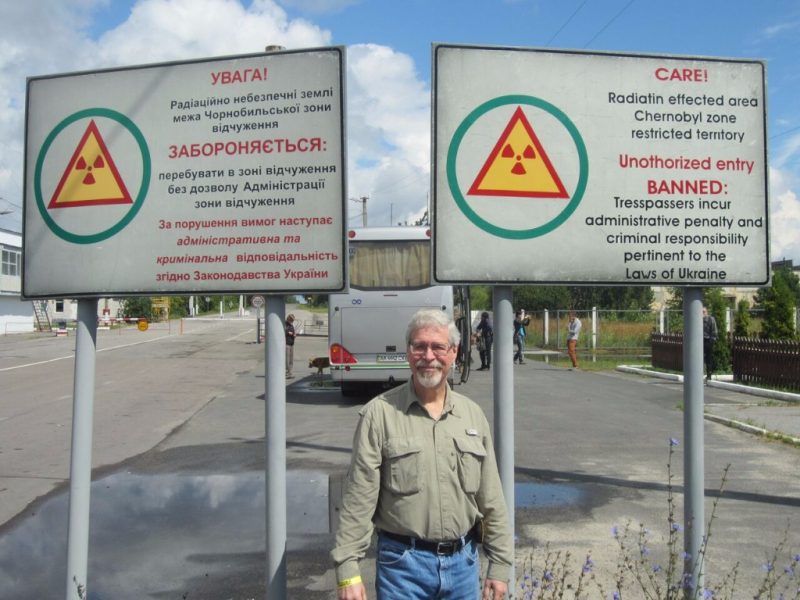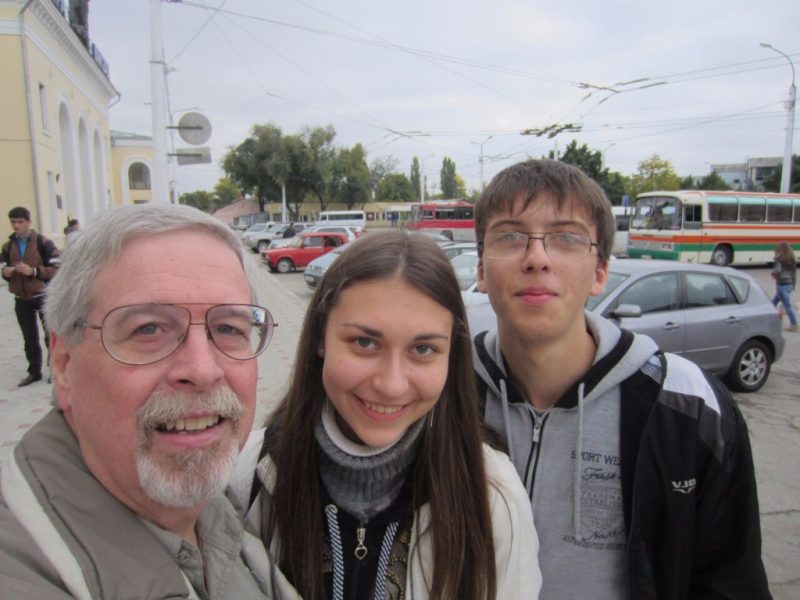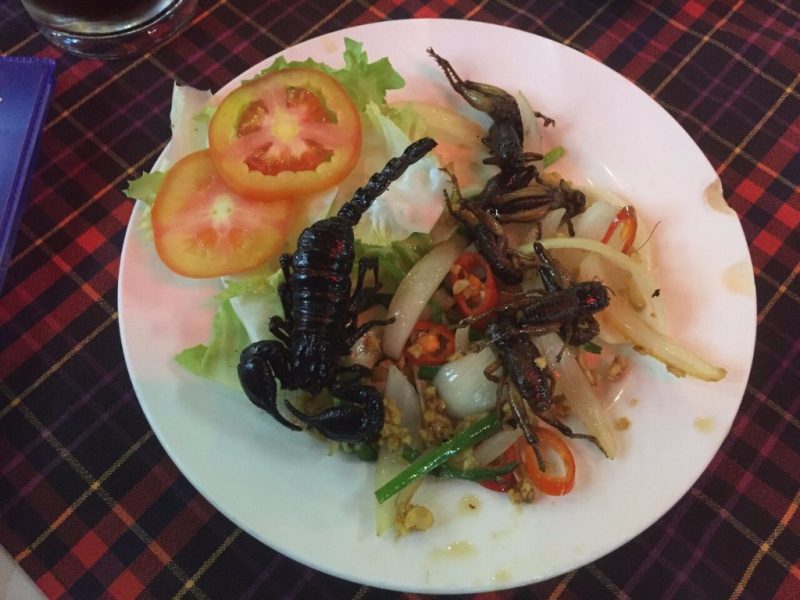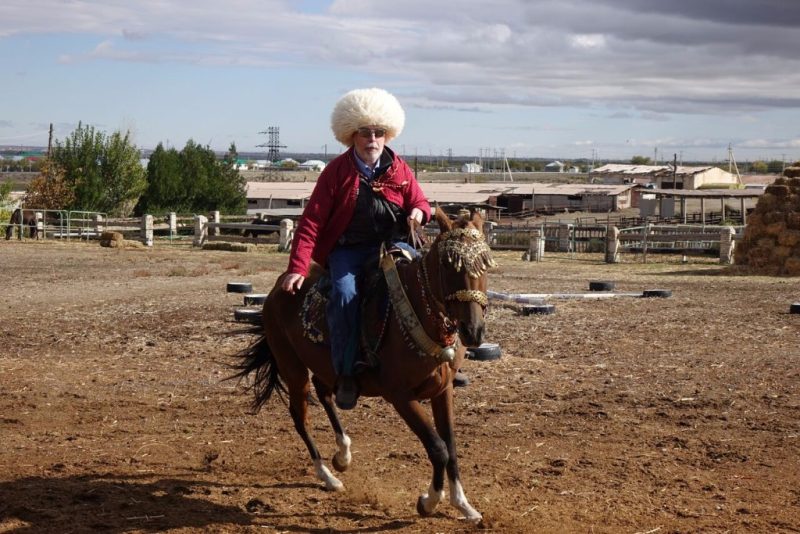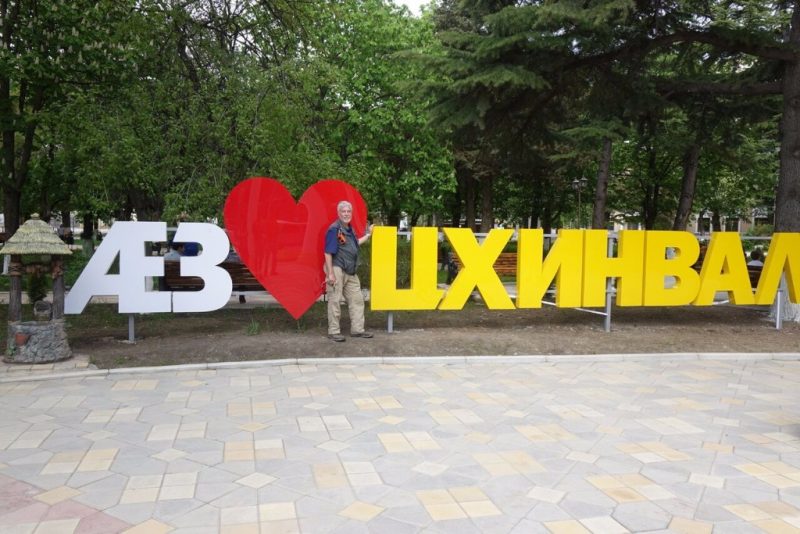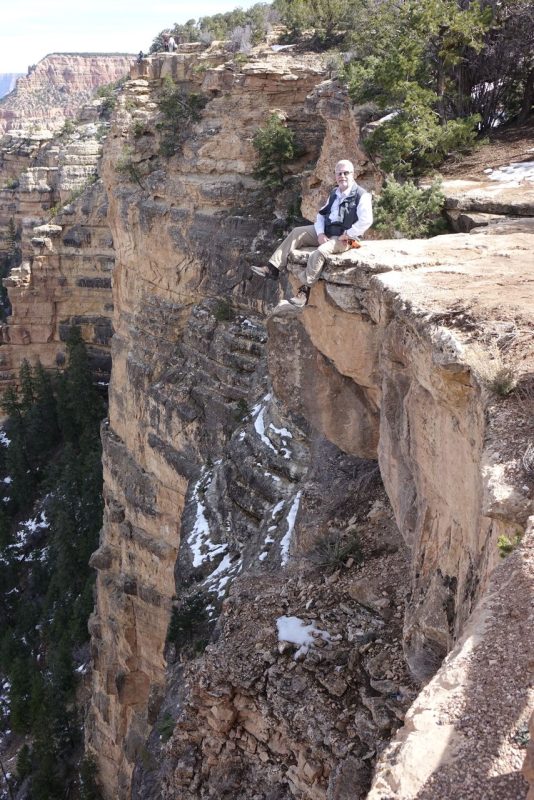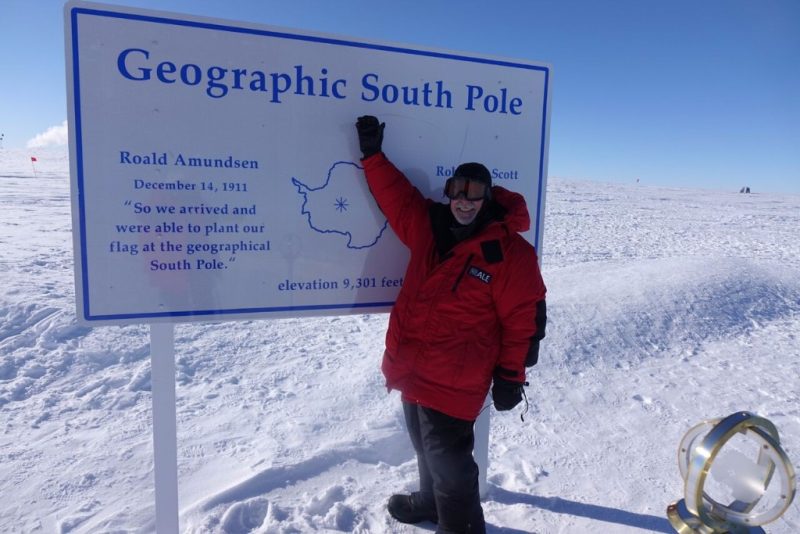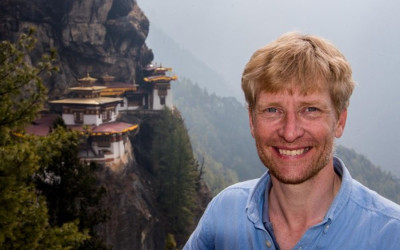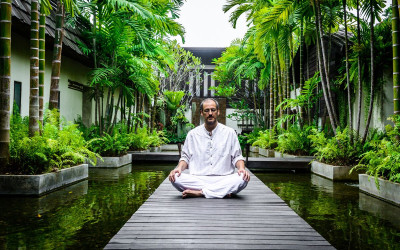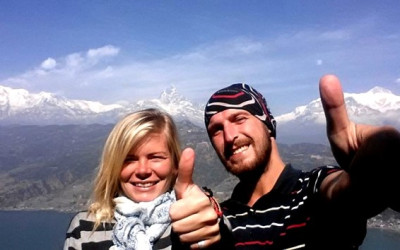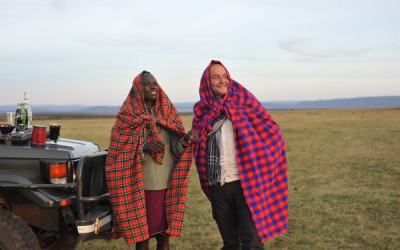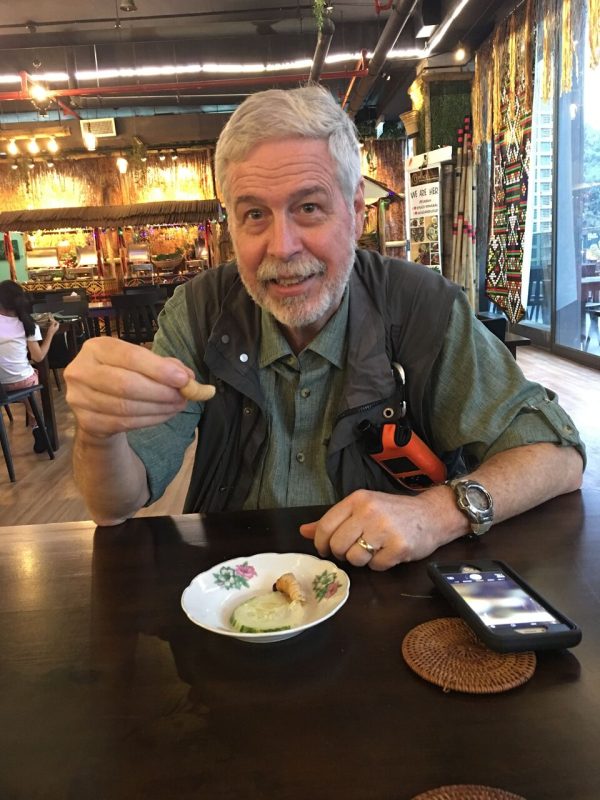
Paul, tell us a little about your background and how your interest in travel developed.
I was an only child who grew up on a farm in way, way outback midwest US. As a youngster, we had no indoor plumbing, no telephone, no TV, no air conditioner and we had heating in only one room of our house. Our water supply was runoff from an adjacent field. But our outhouse was a “two-holer,” so we were considered privileged. I only had three friends within bicycle distance, and my elementary school had three teachers for eight grades.
But looking back on it, I can identify three things that, subconsciously at the time, primed my mind for future world travel. (1) My parents bought me a World Book Encyclopedia set, which I read every page from AA to ZZ multiple times. I was especially interested in reading about countries and cultures of the world and studying the maps that went with them. (2) My seventh/eighth grade teacher was a geography aficionado whose enthusiasm for it infected me. A couple years ago I had the honor of meeting him again (in his 90’s) and thanking him for being a positive formative force in my life. And, (3) when I was about nine or ten years old my parents wanted me to meet my relatives in Denver. Since they couldn’t afford for the three of us to go they packed a small suitcase for me, gave me a little money and put me on a train with the instructions “Be sure you get off at Denver.” I found that I wasn’t intimidated by solo travel in an unknown situation, but rather was intrigued and emboldened by it.
But then life took over in the form of attending university, having a corporate job with essentially no related travel, and being married with young children, so travel just wasn’t happening. Then in 1996 fate struck … I had the fortune of being at the right place at the right time, and I was assigned to be a mergers and acquisitions manager. My M&A projects were nearly all in international places. I traveled the world (on an expense account!) selling corporate business units and assets, and I discovered that both M&A work and global travel were so much fun. Whenever possible I would take a day or two of vacation while traveling on business to go (at my own expense) somewhere in the continent/region I was in at the time to see and experience everything possible. This continued for the majority of the twenty years from then until I retired in 2015. Now being retired, I can indulge my found passion of world travel. My travel horizons have expanded to wherever I want to go, not just to where the projects were. I do wish I was still on an expense account though.
Do you plan on completing all the countries of the world? Why/why not?
That is certainly not my goal. Personally, I don’t see world travel as a competition. Numerically, I may be one of the least travelled of the avid travelers you have interviewed – currently NM 294, UN 96, TCC 141. To me the joy of travel is not measured by compiling numbers, but rather in the people I meet, the cultures I gain some understanding of, the experiences I have, the natural and human-made sites I explore and the historical understandings I absorb by hearing about it from people living where it happened. How do you measure all that in numbers? That said, I do want to go to as many places as I can to experience as much as possible of what I just described. And I especially like NomadMania’s emphasis on regions rather than countries, because few countries can be well experienced by just visiting one place in it.
Of the countries you have done, which have surprised you most (negatively or positively)?
I think I will answer this by rewording the question using “places and locations” rather than “countries”. In most countries I have experienced positive surprises in some places, and negative in other places.
Popular and publicized tourist destinations tend to surprise me negatively. They usually strike me as contrived, like a movie set. Sometimes when transiting from an airport to a popular tourist destination there is a place along the way where it feels like I have passed through a transparent wall, from the real to the made up.
On the other hand, I have had many positive surprises in places in countries that media and rumor have given a negative reputation. Most often this happens when I meet and spend time with local people and have an opportunity to learn and experience the reality of the place. Positive surprises also often happen when I am able to experience many natural and some human-made places – like mountains and World Heritage Sites – places that are impossible to adequately describe and characterize in words and pictures due to the limitations of written communication and camera perspective.
There are some great large cities that I have really enjoyed. But in general I prefer smaller cities, towns, villages and rural places. My travel happiness ratio (positive experiences divided by negative experiences) is higher in those places.
So give us a couple of the most memorable travel stories.
There are so many memorable experiences, and a lot of them were the result of an unplanned chance encounter with someone local.
I had explored Tiraspol Transnistria on foot, which I thoroughly enjoyed, and I was ready to return to Chișinău Moldova. I planned to return by bus, but I couldn’t find the bus station as I had arrived by hire-car rather than bus (this was before the days of Google Maps). I stopped at a couple city bus stops and couldn’t get directions from anyone because I only spoke English and my hand drawn bus and building apparently didn’t look like a bus station. Then on my third try, a pair of teenagers said “Yes, we speak English!”. Dima and Kate (I assume actually Dmitry and Katerina) said, in not so fluent English, that they were taking an English class in school, but it was difficult because the teacher didn’t speak English and she was learning English from the book along with the students. They said of course they will walk with me to the bus station, but first could they show me more of their city and tell me about it and life in Transnistria, to practice their English? And could I tell them about the US? I was the first native-English speaking person they had ever met. They had never traveled outside Transnistria and the near part of Moldova. I wanted to give them a small gift, but I had nothing but my business card. But for them the card was worth gold to show others in class the next day. They eventually took me to the bus station and made sure I bought the right ticket and got on the right bus. This unplanned encounter added a couple hours to my travel, but was worth more to me than the rest of the day.
On a recent trip I was traveling by train in Russia in a shared compartment with a young man named Mikhail. He turned out to be a Russian Orthodox parish priest (he was dressed in “civilian clothes”) who was returning home to St. Petersburg. He spoke no English, and I speak no Russian, but Google Translate allowed us to have a pretty good conversation. When I mentioned that I was headed to a place about an hour drive outside St. Petersburg he insisted that he would drive me there when we got off the train. Under no circumstances would he accept money, not even for fuel or road tolls. We took a taxi to his apartment where he changed into his “work clothes” and he then used his car to drive me as promised. No big deal you may think, but for me it was yet another example of a chance encounter that resulted in a friendship and understanding between diverse people.
And now you get a third story at no extra charge — I was going through a lightly-used mountain road immigration point from Turkey into Georgia. For some unknown reason I was selected on the Georgia side for a thorough bag search and 15-minute interrogation (maybe because there was no one else trying to cross the border). During the interrogation, one of the officers asked me with a straight face and stern tone, “Are you a spy?” I had to pause briefly to choke back laughter and avoid asking “Do you ever get a ‘yes’ to that question?” Then I simply answered “no.” I wasn’t arrested and was allowed to pass, so I guess my answer was satisfactory.
You are a fan of national cuisines. Tell us a little about the (strange) things you have eaten on your journeys.
To me, eating like the locals is part of the experience. But I try to take that to the fringe of local cuisine, to include the more “exotic” local foods. I have never experienced any such food that I didn’t like after trying it, and I have never had any adverse effect. So … here’s a partial list:
• Malaysia – Butod (sago palm grub), eaten live, but bite off the head and discard it. Tastes like creamy, sweet coconut milk. Disregard its efforts to crawl back out of your mouth.
• Malaysia – Durian, a quite nice fruit which tastes nothing like its nasty smell.
• Vietnam – Fried black scorpion. Break off the stinger and discard it. The shell crunches up nicely into tiny pieces and the main body has a rather meaty interior, with a pleasant mild spicy flavor; savory not sweet.
• Several places – Fried crickets, the bigger the better, really. Rather bland unless fried with appropriate spices.
• Belize – Iguana. Tasted more like fish than chicken to me. Eat carefully because it is full of small sharp bones.
• Snakes – I have eaten several kinds several places. Again, watch for bones
• Vietnam – Eel. Probably my least favorite, greasy and full of bones
• Australia – Emu, ostrich, water buffalo, crocodile, kangaroo
• Chechnya – Baarsh; A section of tripe (cow stomach lining) stitched into a pocket shape and stuffed with minced intestines, onions, rice and spices. Delicious
• Palau – Big disappointment; The restaurant was out of fruit bat because the guy in the hills hadn’t come to town with a supply recently.
• USA – Spam, Spam, Spam – I grew up on it; Also blood sausage and various animal internal organs; When you are poor, you buy the cheaper meats.
• But my absolute favorite food on a trip any time, anywhere, although not “exotic” or uncommon at all, was “manti” that was prepared by Adam Satuyev’s wife in Urus Martan, Chechnya. It is a dumpling that is common in Central Asia and the Caucasus, and is somewhat similar to Georgian kihnkale. Her recipe for it was so unbelievably good!
How do people in different countries react when they find out you’re from the US?
No one anywhere has ever told me “Go home Yankee!” or anything remotely similar to that. I find that if I approach people with sincere respect and interest in their homeplace, their culture and their history, it is usually reciprocated. Many times I get questions about the US. And a surprising number of times I am told of a relative or friend who lives somewhere in the US, and I am asked if I know them (like I know all 325 million people). Interestingly, at some remote checkpoints and border crossings, I have had to spend time talking with a curious officer or policeman, not because there is any problem with my papers or permission to go through, but rather because, as one Russian checkpoint officer said, “We don’t get many Americans with Turkmenistan visas passing through here.”
Of course there have been times when a person ignores me, or makes a face, or is uncooperative, or impolite or just walks away. Maybe sometimes it was a result of my nationality. I don’t know. I don’t dwell on it. We have people like that here in the US also.
What do your family and friends think of your intensive travels?
I expect my case is much the same as other NomadMania folks. I am blessed that my wife understands and supports my wanderlust, although she does not care to travel with me. My two adult, married children would love to travel also (and previously did some traveling), but they are now in the “life took over” stage – we have nine grandchildren.
As for friends, they quickly self-sort into two categories – one, those whose eyes glaze over with disinterest at about the 15-second point of one of my travel stories, and two, those who actually seem interested and engaged in the travel conversation. For those in category one, I have learned to do my best at holding up my end of a conversation on sports, or politics, or whatever their interest is.
To increase the quantity of friends in category two, I joined Travelers’ Century Club some time ago, and I am now the Chapter Coordinator for the Texas & Oklahoma Chapter. Our quarterly luncheon meetings are a welcome chance to surround myself with like-minded avid travelers who actually enjoy talking about travel experiences.
You’re from the South of the US and currently live in Texas. What are some ‘jewels’ of this region that most travellers do not know about?
Please let me narrow the question to just Texas, since “Southern US” is a very subjective term for which well-meaning geographers disagree on its extent. And besides, Texas alone is really big! – 269 thousand square miles (697k square kilometers). And Texas’ population is about 28 million.
We don’t have majestic mountains, although our “Hill Country” has some mighty fine scenery. And we don’t have ancient architectural and archeological resources like other parts of the world. But other than that, whatever you want we pretty much have it.
I think the most applicable term for Texas is diversity, in many different ways – climatic, flora and fauna, cultural, scenic, gastronomic, and others. And ethnic diversity (surprised?). I recently read that Houston is now statistically the most ethnically diverse large city in the US according to one study, and second in a different study. 145 different languages are spoken here.
The four large metroplexes in Texas – Houston, Dallas/Ft. Worth, San Antonio and Austin – can boast world class arts (performing and museum), medical centers, cuisines of all types, and sports all in a very laid-back lifestyle.
And the vast horizons outside the cities offer virtually any kind of outdoor activity you may want, other than perhaps technical mountain climbing.
I can’t suggest a short list of the ‘jewels’ because one person’s jewel is another person’s lump of coal. Just do some internet research before traveling here to find the things that interest you most, then go where those jewels are. Texas is too big to wander around without a plan.
So what are your travel plans for the next 6 months?
- Five of the northernmost NomadMania regions in Canada
- North Pole
- All NomadMania regions of Greenland
- Some NomadMania regions in Morocco (still in planning process)
- Western Sahara
- All NomadMania regions in Mali (including Timbuktu and WHS sites)
Plus perhaps a short trip or two in North America and/or Caribbean
Finally the question we always ask – if you could invite four people to dinner from any time in human history, who would you invite and why?
I would choose people with broad global experiences and views. I think one would be Henry Kissinger (former US Secretary of State), who I have heard speak and for who I have great respect. His knowledge of international geopolitics is second to none. He can take a vast amount of geopolitical information and distill it down to a simple yet elegant understanding and explanation, and present it in a way that even dissenters can respect if not agree.
Another would be Ferdinand Magellan. I am a planner, whether for travel or otherwise. Magellan probably did as much planning as he could for circumnavigation of the world, but he nevertheless sailed off on a trip that was nearly unknowable. I would like to get into his mind to find out how a person like him has the confidence, courage and desire to deal with vast unknowns, including personal danger, and yet go ahead.
Another would be Nicola Tesla, known as a mad scientist for his rather bold and eccentric ways. He was an amazing inventor, including the induction motor that became the basis of George Westinghouse’s development of the alternating current power systems in global use today. But what really intrigues me is that Tesla was a person who could think and imagine so far out beyond the boundaries of contemporary thought and experience, to see what is possible and then set about developing it. It is not surprising that Elon Musk named his groundbreaking electric car the Tesla.
And fourth would be Samuel Langhorne Clemens, better known by his pen name Mark Twain, of Tom Sawyer and Huckleberry Finn fame. I think he would bring great levity and humor to the conversation that would be much too serious without him. But he would fit right in because of his significant travels and his understanding and appreciation of the human condition.
The photos in this interview are from Paul’s personal collection and show him eating butod in Malaysia, at Chernobyl in Ukraine, with Dima and Kate in Tiraspol, a platter of yummy snacks in Vietnam, in Tajikistan, South Ossetia, the Grand Canyon and, obviously, the Geographic South Pole.
